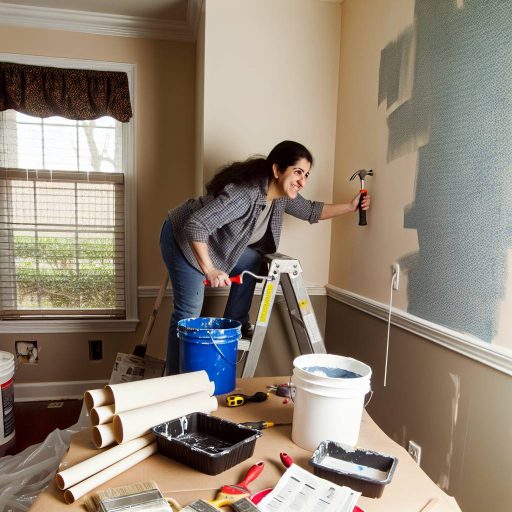Understanding Closing Costs
Definition of Closing Costs
Closing costs represent various fees associated with finalizing a real estate transaction.
They typically range from 2% to 5% of the home’s purchase price.
Understanding these costs is essential for every homebuyer.
Closing costs often include payments for services that facilitate the transaction.
Examples of such services include title searches and appraisals.
Other fees may cover loan origination and insurance.
This comprehensive understanding helps buyers prepare financially.
Significance in Homebuying
Closing costs play a critical role in the homebuying process.
They represent the final step before ownership is transferred.
Being aware of these costs enhances transparency and trust.
Homebuyers can negotiate some of these fees with the seller or lender.
Understanding closing costs can help avoid last-minute surprises.
Ultimately, knowing what to expect financially promotes better decision-making.
This knowledge equips buyers to compare offers effectively.
Moreover, it can determine budget adjustments needed after purchase.
Types of Closing Costs
Overview of Closing Costs
Closing costs are essential expenses when buying a home.
They cover various fees and services needed to finalize a mortgage.
Understanding these costs helps you budget effectively.
Loan-Related Fees
Loan-related fees are common in homebuying transactions.
They include origination fees, which are charged by lenders.
Additionally, you may encounter underwriting fees for processing your loan.
Also, there are discount points designed to lower your interest rate.
Title Services
Title services are crucial for ensuring clear ownership.
Title insurance protects against disputes over property ownership.
This insurance can prevent significant financial losses in the future.
Furthermore, a title search confirms that the property title is clear.
Government Fees
Government fees encompass various taxes and costs associated with the property transfer.
You will likely pay recording fees for registering the property with local authorities.
Transfer taxes may also be applicable based on your location.
These fees help facilitate the legal aspects of the transaction.
Escrow and Prepaid Costs
Escrow fees cover the service of managing funds during the transaction.
These fees ensure that all parties fulfill their obligations before closing.
Prepaid costs include home insurance and property taxes.
These costs are paid upfront to protect the lender’s interest.
Miscellaneous Fees
Miscellaneous fees can arise from various services requested during the homebuying process.
These might include home inspection fees or attorney fees if legal counsel is involved.
Home warranty fees also fall under this category for added protection.
Each fee contributes to the overall cost of securing your new home.
Who Pays Closing Costs
Overview of Closing Costs
Closing costs encompass various fees associated with closing a real estate transaction.
These expenses can come from numerous parties involved in the homebuying process.
Understanding who pays these costs is essential for buyers and sellers alike.
Buyer’s Responsibilities
Generally, the buyer is responsible for a significant portion of the closing costs.
This includes fees for services like appraisals and inspections.
Additionally, buyers often pay for title insurance to protect their ownership rights.
Another crucial fee is the loan origination fee charged by lenders.
Buyers should be aware of these expenses in advance to budget effectively.
Sellers’ Contributions
While buyers pay most closing costs, sellers also bear some responsibility.
Sellers typically cover the real estate agent’s commission fees at closing.
In some cases, sellers may agree to pay part of the buyer’s closing costs as a negotiating tactic.
This can make a home more appealing to potential buyers.
Lender’s Role
Lenders also play a part in the closing cost structure.
They may charge fees such as underwriting and processing fees for handling the loan.
Moreover, lenders must provide a Loan Estimate to the buyer, detailing expected closing costs.
This helps buyers understand their financial obligations before closing.
Negotiation Opportunities
Closing costs are not set in stone and may be subject to negotiation.
Buyers can discuss who will cover which fees during contract negotiations.
Sellers often leverage their willingness to cover costs to attract offers.
Additionally, some lenders may offer incentives to reduce closing costs.
Understanding Responsibilities for Closing Costs
In summary, closing cost responsibilities vary among buyers, sellers, and lenders.
Understanding the breakdown of these costs promotes informed decision-making.
Ultimately, adequate preparation can alleviate financial surprises at closing.
See Related Content: Home Inspection Checklist For Understanding Local Building Codes
How to Estimate Closing Costs
Understanding the Factors Affecting Closing Costs
Closing costs can vary significantly based on several factors.
The location of the property plays a major role in cost estimation.
Additionally, the price of the home is crucial in determining these costs.
Local and state taxes can also influence your total closing costs.
Moreover, loan type and lender fees add to the overall expenses.
Calculating Closing Costs Based on Home Price
Typically, closing costs range from 2% to 5% of the home price.
For instance, a home priced at $300,000 might incur costs of $6,000 to $15,000.
Therefore, you can estimate closing costs using this percentage range.
This method provides a basic understanding of what to expect financially.
Estimating Location-Specific Closing Costs
Urban areas often have higher closing costs than rural locations.
This discrepancy arises from increased demand and higher property values.
Local regulations and taxes may further impact costs in your area.
Conducting research on local market conditions is essential.
Consider consulting a local real estate agent for tailored advice.
Additional Considerations for Closing Costs
Don’t forget about additional fees that may arise during closing.
These can include inspection, appraisal, and title search fees.
Homeowners insurance is another essential cost to consider.
Moreover, budget for potential HOA fees if your property is part of a community.
Altogether, having a detailed breakdown will ensure you are prepared.
Find Out More: A Beginner’s Guide To Home Inspections For First-Time Homebuyers
Negotiating Closing Costs
Understanding Closing Costs
Closing costs can add substantial expenses to homebuying.
They typically range from 2% to 5% of the home’s purchase price.
Buyers should familiarize themselves with these costs early on.
Researching All Fees
Start by obtaining a list of all closing fees.
Request a Loan Estimate from your lender.
This document outlines all estimated closing costs.
Compare these costs with estimates from other lenders.
Asking for a Breakdown
Familiarize yourself with each line item on the closing statement.
Ask your lender to clarify any fees you don’t understand.
This awareness helps in identifying negotiable areas.
Shop Around for Services
Various services contribute to your closing costs.
Consider shopping for title insurance and home inspections.
Compare prices from multiple providers to find the best deal.
Negotiating with the Seller
You can negotiate closing costs within the purchase agreement.
Sometimes, sellers agree to cover part of the closing costs.
Factor this into your offer when making a bid.
Considering Lender Credits
Ask lenders about options for lender credits.
These credits can offset some of your closing costs.
However, ensure you understand the trade-offs involved.
Utilizing Government Programs
Investigate government programs that help with closing costs.
Some programs offer grants or down payment assistance.
Check local and state resources to tap into these benefits.
Getting Professional Help
Real estate agents can provide helpful advice on negotiations.
Consider consulting a financial advisor for personalized guidance.
They can help you make informed decisions throughout the process.
Discover More: Focusing On Plumbing And Electrical Aspects In Your Home Inspection Checklist

Financing Your Closing Costs
Options for Incorporating Costs into the Mortgage
Understanding how to finance your closing costs is crucial for homebuyers.
Many buyers prefer to incorporate these costs into their mortgage.
This option allows for more manageable upfront expenses.
Borrowers can discuss this option with their mortgage lender.
Rolling Closing Costs into the Loan
One common method involves rolling costs into the loan amount.
This option increases the total loan balance.
However, it also spreads the costs over the life of the loan.
Consequently, this can alleviate immediate financial pressure.
Keep in mind that it might increase monthly payments slightly.
Rate Increase for Incorporation
Another option involves a slight increase in the mortgage interest rate.
This approach allows buyers to finance their closing costs.
In return, the lender offers a lower upfront payment requirement.
It’s vital to calculate total long-term costs carefully.
In some cases, this method may turn out to be more expensive.
Third-Party Assistance Programs
Some buyers may qualify for assistance programs.
These programs can help cover closing costs directly.
Many states and local governments offer such programs.
Research the options available in your area.
Eligibility often depends on household income and property type.
Gift Funds from Family
Buyers can consider using gift funds from family members.
This strategy can significantly lighten financial burdens.
Family members can provide money to help cover closing costs.
However, proper documentation is essential.
Lenders often require a gift letter to validate the source of funds.
Explore Further: The Role Of Homeowners Insurance For First-Time Homebuyers Explained
The Timing of Closing Costs
Understanding When to Expect Payment
Closing costs typically arise when you finalize your home purchase.
This usually happens during the closing meeting.
At this point, both buyers and sellers sign necessary documents.
Therefore, you need to prepare for these costs in advance.
Most lenders provide a good faith estimate early in the process.
This estimate outlines expected closing costs and fees.
When you receive this estimate, review it closely.
Keep in mind that the final costs may vary slightly.
However, making timely preparations is essential for smooth closing.
Due Diligence Before Closing
Conduct due diligence to better understand your closing costs.
This involves researching various elements related to your purchase.
First, review all loan agreements and disclosures carefully.
Next, consider additional costs such as inspections and appraisals.
Utilities and other service costs may also factor into your budget.
As you prepare, keep a checklist of expected expenses.
Doing so helps ensure that you do not overlook essential fees.
Additionally, communicate with your real estate agent regularly.
The agent can provide valuable insights regarding closing costs.
Ultimately, being well-prepared can alleviate closing day stress.
Closing Costs vs. Down Payment
Understanding the Differences
Closing costs and down payments serve distinct purposes in homebuying.
A down payment is the upfront payment made when purchasing a home.
Conversely, closing costs encompass various fees incurred during the closing process.
These fees can include inspection fees, title insurance, and attorney fees.
While the down payment impacts mortgage terms, closing costs affect overall financing.
Buyers should plan for both to secure their home purchase successfully.
The Importance of Down Payments
Down payments demonstrate the buyer’s commitment to the purchase.
Lenders often require a down payment to reduce their risk.
Higher down payments can lead to better mortgage terms.
This includes lower interest rates and reduced private mortgage insurance costs.
Additionally, they can help the buyer build equity faster.
The Role of Closing Costs
Closing costs are typically due at the time of closing the sale.
These costs can vary significantly based on location and the property price.
Common closing costs include appraisal fees, loan origination fees, and escrow fees.
Buyers should request a detailed estimate of all closing costs ahead of time.
This can help them prepare adequately and avoid surprises on closing day.
Planning for Both Costs
Proper financial planning is essential for managing both costs effectively.
Potential homebuyers should save for both their down payment and closing costs.
Financial advisors often recommend budgeting an additional 3% to 6% of the home price for closing costs.
Buyers should also consider first-time homebuyer programs that may help cover costs.
Such programs can provide financial assistance or down payment grants.




